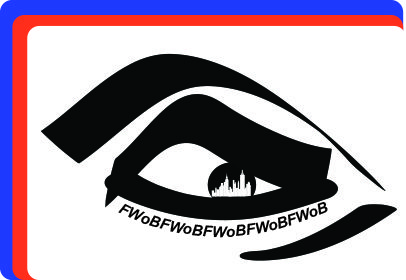A mini nuclear explosion occurred this past week. It wasn’t in Ukraine but it did involve Russia, kinda.
Special counsel John Durham’s report into alleged Trump-Russia collusion during the 2016 election was issued. The probe that had, at its core, the fake news Steele dossier.
Guess what? There wasn’t any, collusion that is.
The report said the FBI should have never launched its full blown probe in the first place.
The collusion chronicle was spun by Hillary Clinton and her cohorts, aided and abetted by some FBI personnel that hated Trump. It was a political and media obsession for years.
Also in the tank were the key players in the liberal mainstream media, especially the Washington Post and the New York Times. Both newspapers even won prestigious Pulitzers for their reporting.
Totally apart from the Durham bombshell report, is an in-depth, fact heavy, blistering rebuke of the mainstream media and the way they fell in line with the concocted collusion narrative. It comes from the Columbia Journalism Review, not exactly an apologist publication for team Trump.
Here’s the link to the four-part probe:
https://www.cjr.org/special_report/trumped-up-press-versus-president-part-1.php
It is very long and incredibly revealing, but I’ll save you some time and summarize it.
Jeff Gerth, the article’s author, is a respected investigative reporter with decades of experience. “I’ve avoided opining in my more than fifty years as a reporter.” He said. “This time, however, I felt obligated to weigh in.”
Gerth continued, “One traditional journalistic standard that wasn’t always followed in the Trump-Russia coverage is the need to report facts that run counter to the prevailing narrative (emphasis mine).”
Among the many people the CJR investigation quoted, was long-time investigative journalist Matt Taibbi. He said about the Trump-Russia reporting, the “more neutral approach…went completely out the window once Trump got elected. Saying anything about the story that did not align with the narrative—the repercussions were huge for any of us that did not go there. That is crazy.”
Yes, crazy, scary and destructive.
Gerth continued, “In January 2018, for example, the New York Times ignored a publicly available document showing that the FBI’s lead investigator didn’t think, after ten months of inquiry into possible Trump-Russia ties, that there was much there. This omission disserved Times readers.”
Well, ignoring stuff seemingly isn’t unusual for the Times. Can you say Hunter Biden’s laptop?
During the 18-months Gerth dug into the Russia, Russia, Russia reporting, he reached out to more than sixty journalists and he says only about half responded. He says, “not a single major news organization made its newsroom leader available to talk about their coverage.”
Journalists hate to admit when they’ve blown it, no matter who suffers the consequences.
The way the Times and other media comported themselves on the collusion story is a disgrace, but let me tell you, it’s sadly not the exception.
Under the guise of “investigative journalism”, some reporters, backed by their editors, accept hearsay as fact, accept accusations at face value and refuse to retract, correct or update their stories with new and true information, because it may run counter to the prevailing narrative.
The Times didn’t do it on Russia-gate with Trump, but the former president is a public figure with a bully pulpit and can fight back. Private individuals cannot slay the media Goliaths and their penchant for persecution.
As a consequence, careers are canceled, lives are ruined and ambitions are ambushed because of some journalists who refuse to let the facts stand in the way of a good story.
Remember Mad Libs? The word game where the story was laid out and you had to fill in the blanks with nouns, adjectives and adverbs? That’s sorta what’s going on in some media outlets today. Unlike Mad Libs, it ain’t funny. Irresponsible reporters start with the story they want to tell, then pursue people and information that fill in the blanks.
If journalists were true to their calling they would dig deeper, to see if there really is any there, there. And where are the editors, pushing them to probe prodigiously before publishing? They’re just as corrupt.
We now know it happened on a grand scale, on a national and international stage with Russia-gate, but that same shoddy and shameful reporting can insidiously cancel out the good name of any of us. Of you, of me.
In his Columbia Journalism Review rebuke of the New York Times, Jeff Gerth counted over a thousand instances when the newspaper used the phrase “people familiar with” as part of its accusatory stories.
That vague phrase has become a key part of some journalists’ bag of tricks. Politicians and others smugly hide behind it when they want to whisper their misinformation in the ears of truth-starved reporters that need to fatten up their flimsy stories.
Jeff Gerth says, “During this time, when the media is under extraordinary attack and widely distrusted, a transparent, unbiased, and accountable media is more needed than ever.” Agreed.
If asking for fairness may be a bridge too far in this hyper-polarized society, where even some journalism schools believe teaching objectivity is so, yesterday, then how about apologies?
One way for the media to start to heal themselves is to come clean when they’re presented with the results of extensive, impartial investigations. To say that maybe we didn’t get the whole story the first time around. Stop hiding behind the “we stand behind our reporting” BS.
Perhaps that, at least, would offer a modicum of solace, if not justice, to the people’s lives their words have wrecked.

